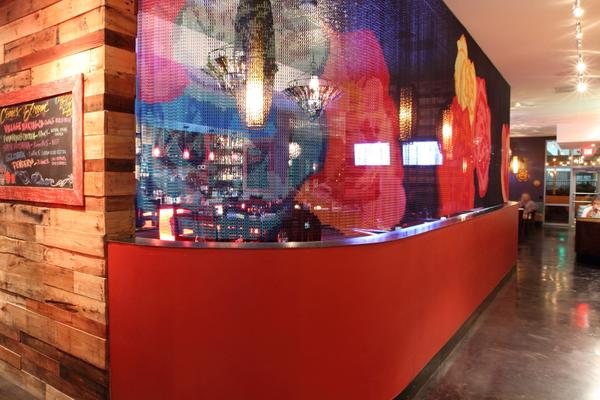From the Fort Worth Business Press by Scott Nishimura
Fort Worth City Council members on Tuesday unanimously approved the adoption of a $112 million plan to transform the aging Cavile Place housing project and surrounding neighborhood in Stop Six into the city’s comprehensive plan. The vote was the first step in what officials estimate will be a 10-15-year implementation. The project plan includes razing the 300-unit housing project, rebuilding 225 units in a modern complex on the site and redistributing the rest in the surrounding neighborhoods, building a community garden as central gathering spot, improving East Rosedale Street as landing spot for hoped-for retail and other commercial uses, and heightening the focus on education and job training. The City, Fort Worth Housing Authority and federal government are expected to collaborate on the project. Don Babers, the federal Housing and Urban Development administrator who supervised the rebuilding of public housing in New Orleans after Hurricane Katrina, has agreed to help take the lead, said City Council members Gyna Bivens, who represents the district and is comparing the redevelopment to Katrina’s aftermath. “The comparison is revitalization,” Bivens said Monday. “They had to tear down and build back up, and that’s what we have to do.”

Proposed development
The plan includes property acquisitions contemplated at $13.1 million of the overall project budget. About 45 percent of the land in the neighborhood is vacant, the plan says. The targeted property is generally vacant and much of it is in foreclosure or has been foreclosed upon, Bivens said. Some of it is occupied, which officials acknowledge may be a sensitive point in implementing the plan. The foreclosures “are the properties that I’ve been looking at,” Bivens said. Once the council votes the plan in, extensive planning and community conversations will kick in, officials said. The plan, displayed on the Housing Authority web site, contemplates 20 potential funding sources, including tax credits; federal, state, and city funds; debt; contribution of city-owned land; state homebuyer assistance; and homebuyer mortgages. Private groups including developers will be encouraged to participate. Development of the plan is a requirement for the the Housing Authority to be able to seek a federal Choice Neighborhood Initiative grant for the redevelopment of Cavile and neighborhood. The funding sources identified in the plan are just “a guide of possible funding sources,” Jay Chapa, the city’s housing and economic development directors, said. “Each project will need to stand on its own.” Communication with, and inclusion of, all community segments will be the biggest challenge, Bivens said. Babers, having been through the Katrina rebuilding, knows the “pitfalls” to avoid, she said. “If people know A to Z, then their fears can be addressed rationally,” she said.
Key features of the plan, and its remarks about them:
* Transformation of vacant property into community gardens and farmers market, along the Dunbar creek/drainage channel from Calumet Street southeast to Ramey Avenue. Besides creating a central spot, the garden could create job possibilities including marketing and selling the produce; and increase the retail-starved neighborhoods’ access to fresh produce. The creek would help irrigate the gardens.
* Stressing the importance of school to the neighborhoods – “the scholastic achievement of these students weighs heavily on how much funding we get,” Bivens said. The Fort Worth schools’ recent creation of the Young Men’s Leadership Academy is leading “a transformation of the educational opportunities in the neighborhood,” the plan says. A Tarrant County College “opportunity center” is one possibility, Bivens said. The plan also calls for expanding transportation services to the schools during bad weather.
Create a neighborhood job training and business incubator that would focus on training and placement programs in culinary arts, agriculture, and other jobs related to the community garden concept. Create a small business development program related to community gardens.
* Demolish the 300-unit, “barracks-like” Cavile Place and replace with 300 new public housing units, 225 in the Cavile neighborhood. The remaining 75 public housing units would be “outside the Cavile Place neighborhood on sites to be determined,” the plan says. The 300 units would be demolished – and replaced – in phases of 112, 88, and 100. A proposed 150 new units, including public housing, and affordable and market rate rentals, would be built on the Cavile site. The plan calls for “blocks immediately adjacent to the Cavile Place site (to) be purchased and assemble for new housing development. While much of this land is already vacant, there are some occupied properties. These are also proposed to be acquired, and where possible, renovated to become an integral part of the new construction.” Total development proposed on these blocks, the plan says: 293 residential units.
* East Rosedale “gateway.” The blocks on the south side of East Rosedale at South Tierney Road are “significant gateway sites” that should include mixed-use buildings with commercial uses on the ground floor and residential apartments above. The plan calls for 53 rental units on these blocks.
* Infill single-family. The plan calls for 193 single-family homes on on existing vacant, single-family infill lots. The homes should be mixed-income, Bivens says. She plans to approach “high-end” buildings to gauge their interest in building homes that would accomodate, for example, pastors of the many churches in the district and Southeast Fort Worth. And she wants to use existing incentive programs to encourage police officers, firefighters, and other public employees to buy into the neighborhoods.
* Improvement of Fort Worth T routes. Current routes are inconvenient to portions of the neighborhoods, creating what Bivens says one person she’s consulted with calls “barriers to employment.” Some of the streets in the neighborhoods will also need to be improved to allow bus access, she said.











